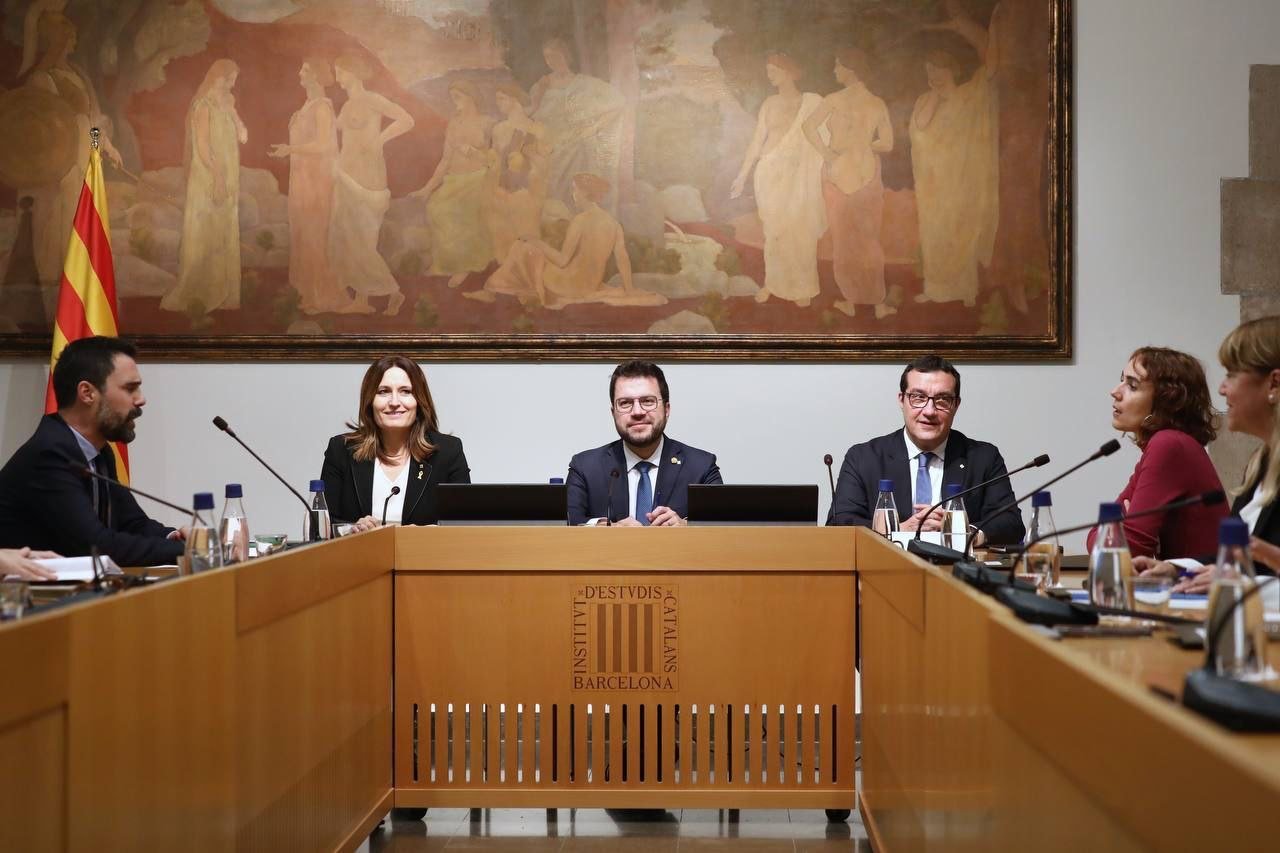After a year of wide-ranging analysis and diagnosis of the situation of the Catalan language, the government of Catalonia has this Tuesday presented a catalogue of 100 specific measures to promote the language. The proposals that are included take in all ministries and contemplate broader measures such as the Catalan audiovisual law and the presence of Catalonia in UNESCO and international organizations, while also covering very specific points such as a decree that makes it possible to substitute a straight payment of fines over breaches in linguistic rights with an investment of the same amount in language training and awareness; grants for the training of judges and prosecutors; plans to promote Catalan in driving schools, sports clubs and religious communities.
"We are fully committed to the fact that we want to live fully and freely in Catalan. The Catalan government's commitment is to make Catalan available everywhere, without having to justify ourselves for speaking our language", affirmed the president, Pere Aragonès, who warned that in recent years "not enough attention has been paid to the language".
The president made a point of highlighting five of the 100 approved measures: the promotion of Catalan in the health sector, because "everyone has the right to be treated in Catalan and in an area as sensitive as people's health it becomes key"; the training of secondary school teachers in the management of multilingualism; the plan to promote Catalan in services for the elderly, to guarantee the use of Catalan in a special way for those groups with the greatest vulnerability; strengthening Catalan in the audiovisual world, consolidating the steps taken in audiovisual legislation, but also measures to guarantee the offer of Catalan in all formats of audiovisual consumption; and to guarantee a network of driving schools in the Catalan language.
The Catalan culture minister, Natàlia Garriga, underlined the major push for Catalan in the audiovisual sector, with assistance for series and films in the language, which has already resulted in five film projects and five major series, as well as measures to boost Aranese and sign language.
Catalan in schools
Regarding the presence of Catalan in schools and the possible response of the Constitutional Court to the latest legislative change which the Catalan government introduced in response to the imposition of a 25% Spanish language quota in classrooms, Aragonès admitted that it was one of the areas that focused a lot of political resources but has avoided advancing scenarios in order, as he said, "not to help the work of those who want to put an end to Catalan in schools." However, he emphasized that a year after the ruling that decreed 25% Spanish in classrooms, the measure is not in force in schools in Catalonia, albeit with what the Catalan president called "an open discrepancy" in 26 of the 72,000 school groups in Catalonia - where more class time in Spanish has indeed been introduced.
Some of the proposals suggest monitoring measures already in progress, such as the Spanish authorities' request for Catalan to be used in the European Parliament. Others limit themselves to studying the state of language usage, such as the chapter on labeling of food products, where the main proposal is a study in order to find out the real situation; or the case of language usage among the operational security and emergency bodies dependent on the Catalan interior ministry, that is to say the police, firefighters and rural agents, for whom a survey is proposed to find out the linguistic reality.
Regarding the change in approach, substituting straight fines over breaches of consumers' linguistic rights for investment of the same amount in training and linguistic awareness for staff of the sanctioned company, the minister explained that this modification has been underway for several months. According to the minister, in 2022 there were 456 complaints and 968 ex officio actions. However, in recent years 60% of infringements end up being dismissed. Since 2012 there have been a hundred fines charged.

